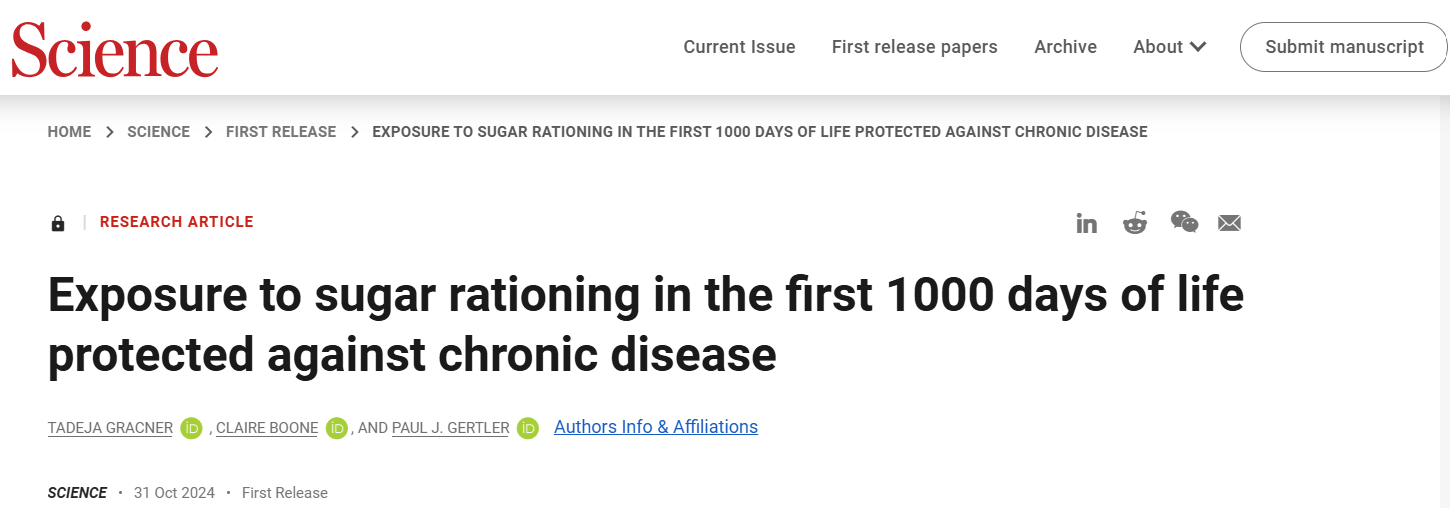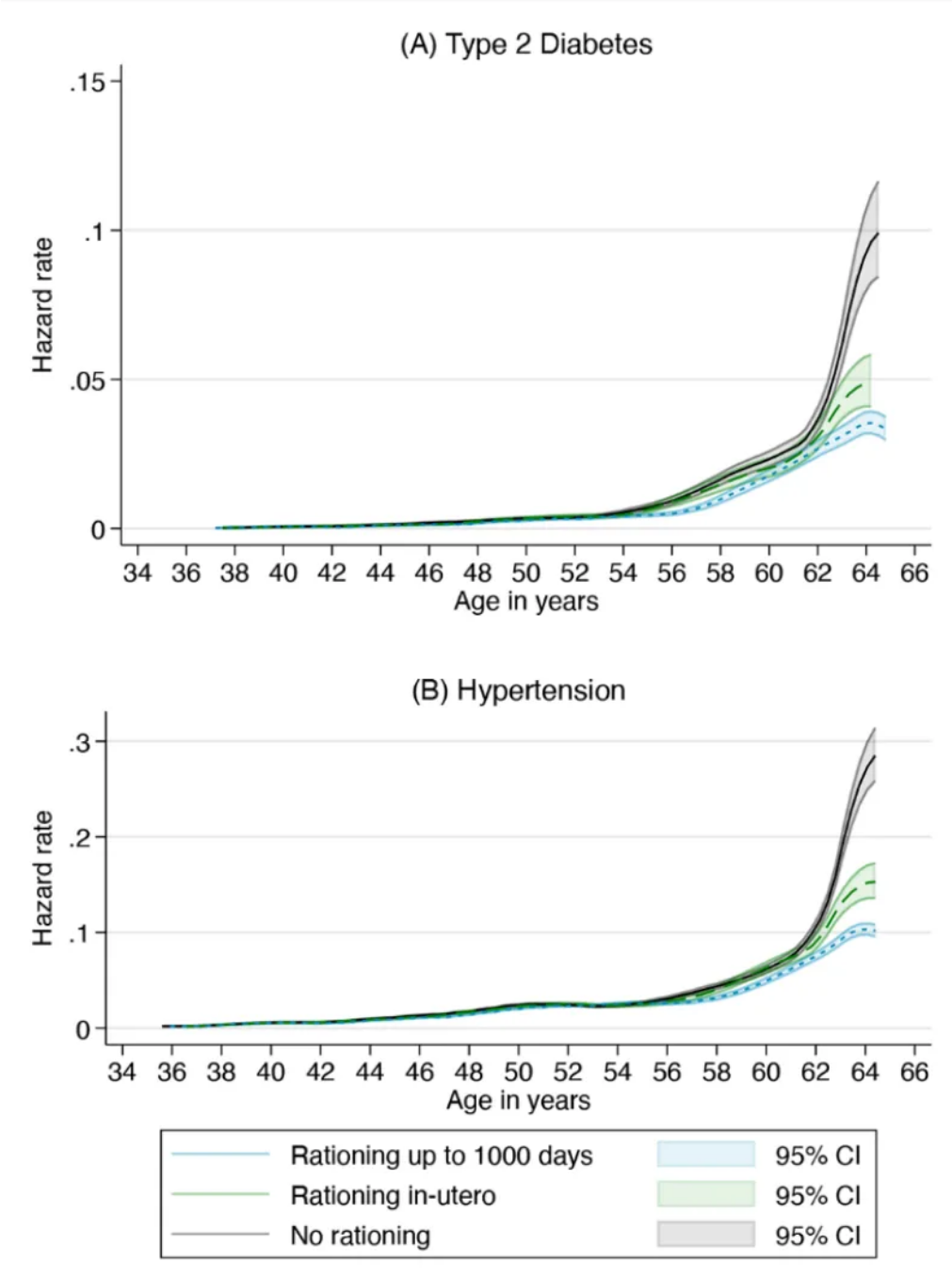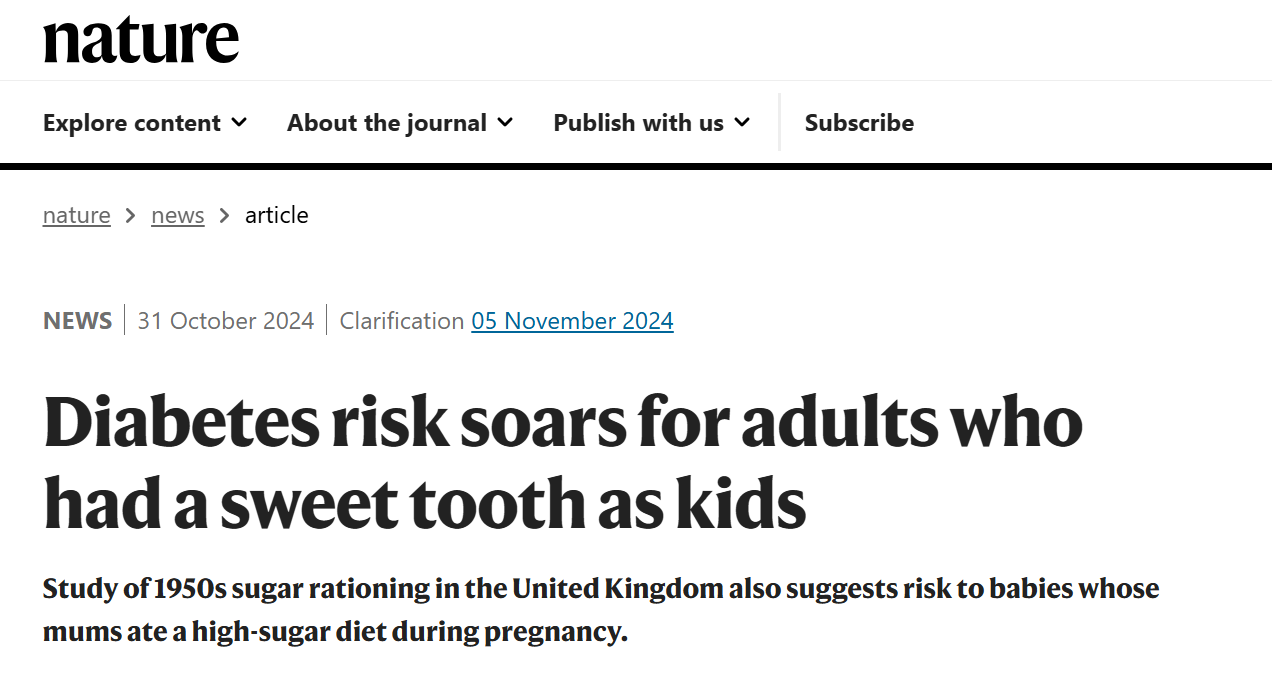On 31 October 2024, a new study published in the top medical journal Science revealed that sugar intake early in life has a significant impact on health in adulthood. The study was conducted by a consortium of researchers from the University of Southern California, RAND Corporation, McGill University and the University of California, Berkeley.
The study found that excessive intake of added sugars during the first 1,000 days of life (from conception to 2 years of age) substantially increased the risk of type 2 diabetes mellitus (T2DM) and high blood pressure in adulthood! Limiting added sugars significantly reduces the risk of T2DM and hypertension in adulthood.

Eating too much sugar before the age of 2 years, the risk of diabetes and hypertension in adulthood increased dramatically!
Using the UK Biobank, a database of genetic and medical data on 500,000 participants, the researchers compared the risk of diabetes and high blood pressure during the sugar rationing period (October 1951 to June 1954) with the risk of diabetes and high blood pressure in adulthood after the rationing period (July 1954 to 1953), and compared the risk of diabetes and high blood pressure in adulthood after the rationing period. (July 1954 to March 1956) the health of the offspring of mothers who conceived. A total of 60,183 participants born between October 1951 and March 1956 were included. Depending on the time of birth, participants were divided into a ‘rationed’ group (mothers conceived before the end of the rationing system in September 1953, and whose offspring were likely to have been exposed to lower sugar intake early in life) and a ‘non-rationed’ group (mothers conceived after the end of the rationing system, and whose offspring were likely to have been exposed to higher sugar intake early in life). (mothers conceived after the end of rationing and offspring may be exposed to higher sugar intake early in life).
Findings
The offspring of mothers who conceived during sugar restriction had a 35 per cent lower risk of developing T2DM and a 20 per cent lower risk of developing hypertension, as well as a delay in the age of onset of T2DM and hypertension of approximately four and two years, respectively, suggesting that restricting sugar intake early in life may have long-term health benefits.

Note:A, type 2 diabetes mellitus; B, hypertension
Figure 1 Correlation between early life sugar exposure and risk of type 2 diabetes/hypertension in adulthood.
NATURE Publishes Article:Diabetes risksoars for adults whohad a sweet tooth as kids
On the same day that the above study was published, another top medical journal, NATURE, published an online article titled ‘Diabetes risksoars for adults whohad a sweet tooth as kids’. Based on the above study, the article examines the relationship between a high-sugar diet in childhood and an increased risk of diabetes and high blood pressure in adulthood, and calls attention to the long-term effects of childhood eating habits.

The authors note that the British study is not the first to link nutrition early in life to disease risk in adulthood. Previous studies have shown that experiencing famine during pregnancy doubles the risk of diabetes in adulthood in offspring. But economist Valentina Duke says data from particular periods can be difficult to interpret adequately, and the UK's sugar rationing policy provides a perfect opportunity for research. Economic difficulties during the Second World War forced the government to introduce rations, and sugar restrictions were not lifted until 1953, years after the war ended.
Researchers found that offspring of mothers who conceived during the sugar restriction period had a 35 per cent lower risk of developing diabetes and a 20 per cent lower risk of developing high blood pressure. Valentina Duke says there's no denying that the impact has been unexpected, but she doesn't want people to overreact to it, and that the key to appropriate sugar intake during pregnancy is ‘moderation’.
Summary
In summary, this study highlights the long-term health effects of dietary habits early in life and provides support for current dietary guidelines - restricting sugar intake appropriately during pregnancy for mothers and early in the lives of their offspring can lead to long-term health benefits. However, while the findings are illuminating, the researchers also point out limitations of the study, such as the fact that the UK Biobank data may not be representative of the UK as a whole and may be biased towards wealthier, healthier individuals.
Reference
[1]Tadeja Gracner et al. Exposure to sugar rationing in the first 1000 days of life protected against chronic disease.Science0,eadn5421.DOI:10.1126/science.adn5421
[2]Heidi Ledford. Diabetes risk soars for adults who had a sweet tooth as kids.2024-10-31. https://www.nature.com/articles/d41586-024-03535-7






Post comments